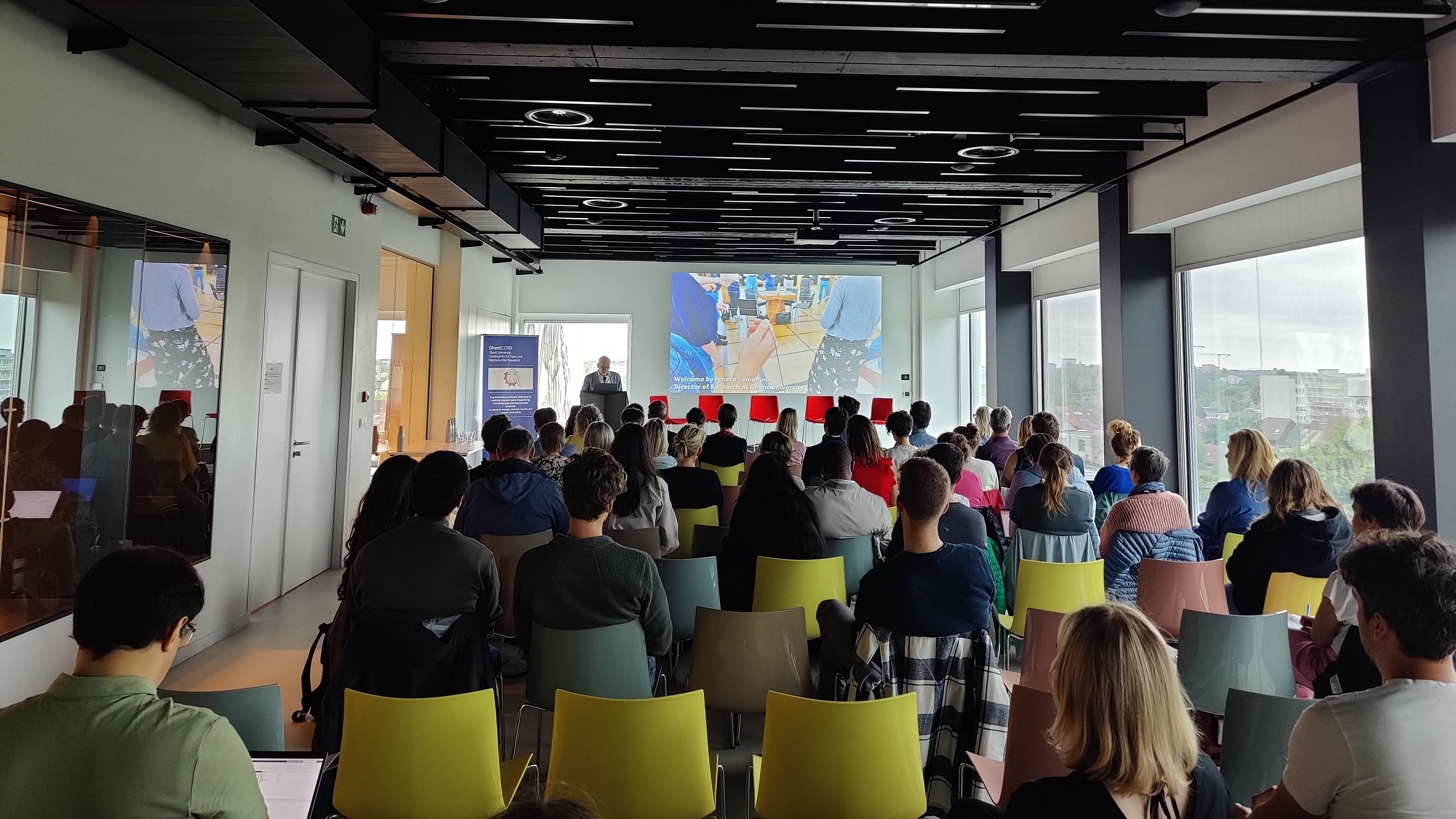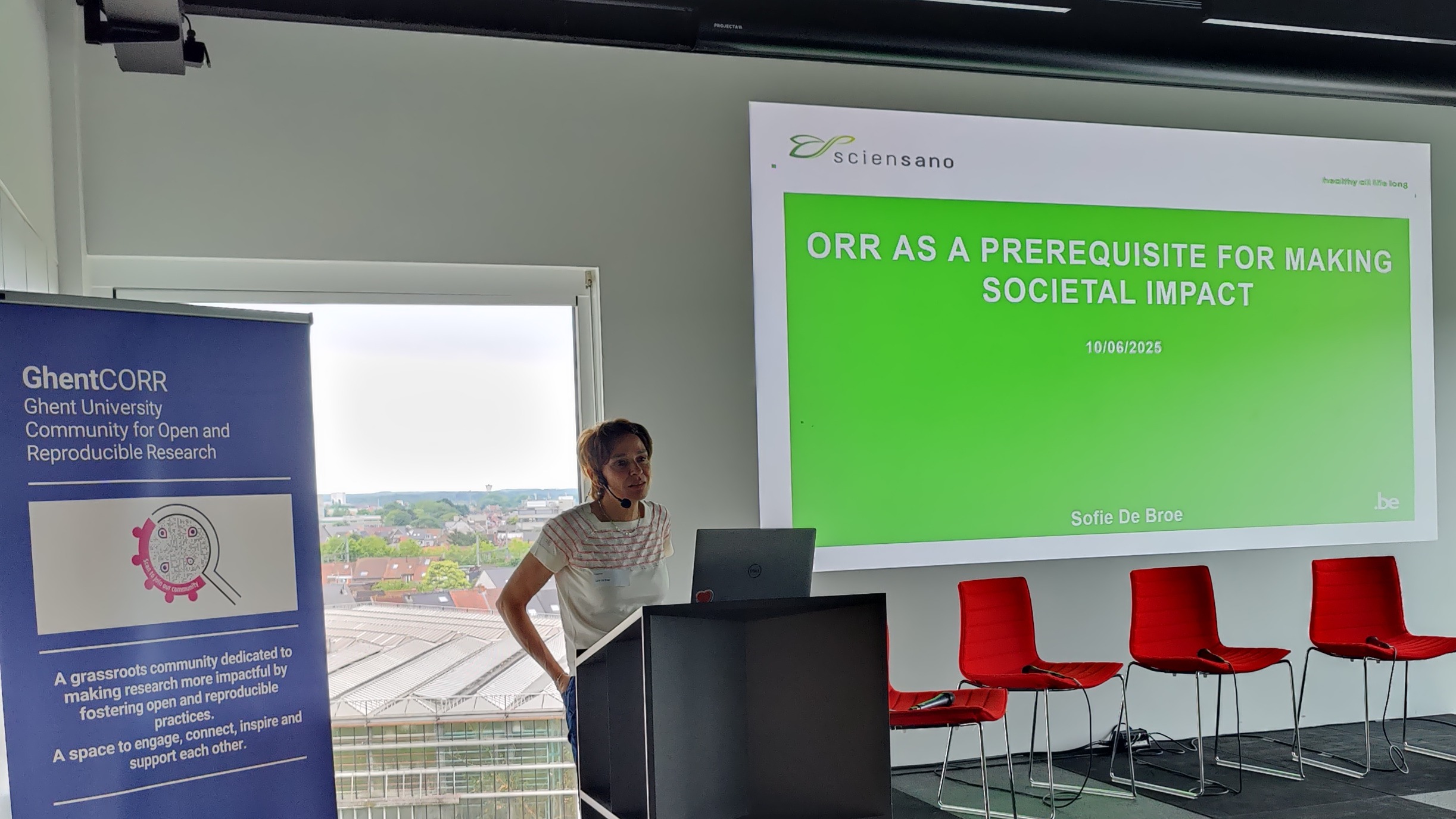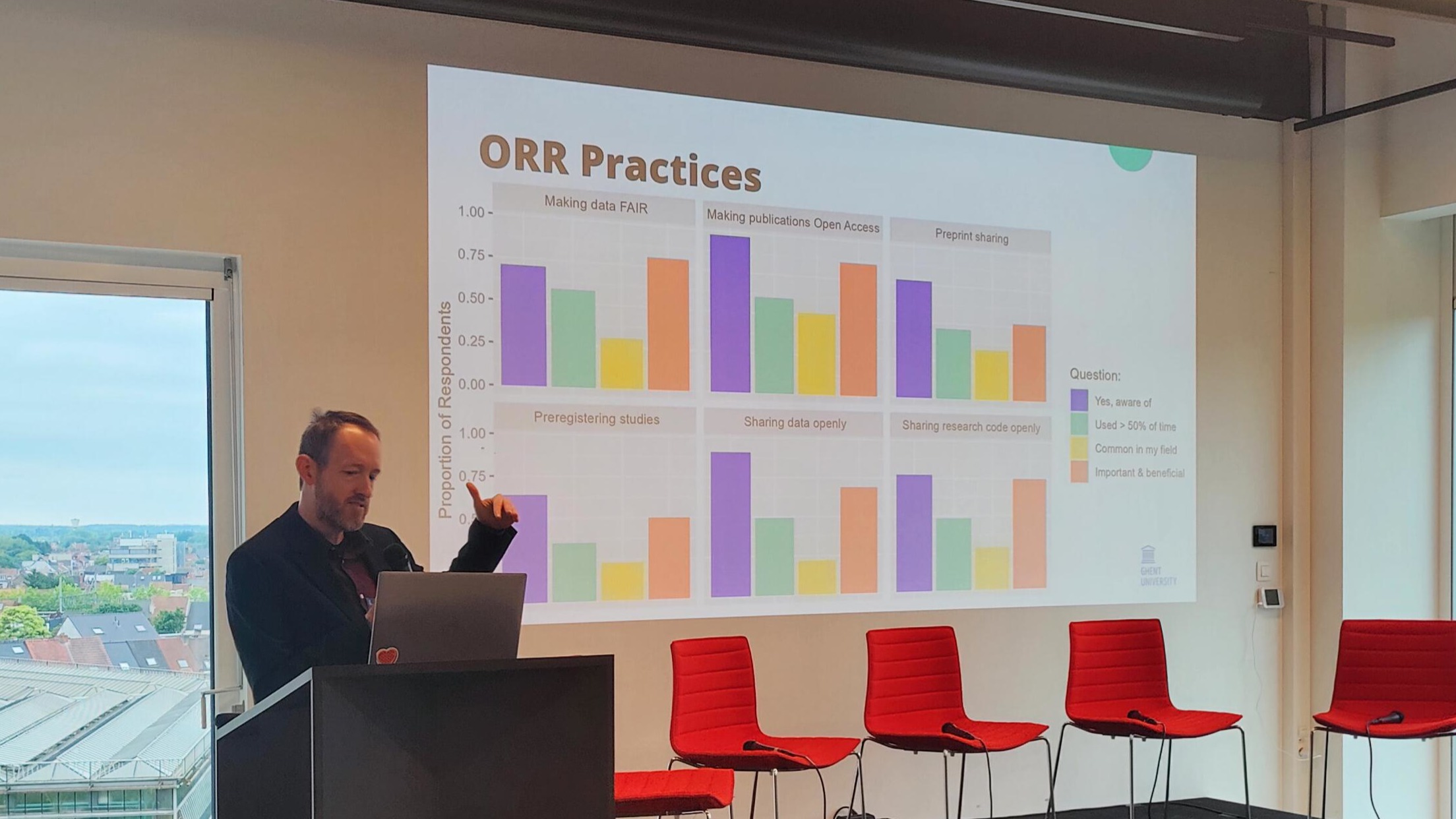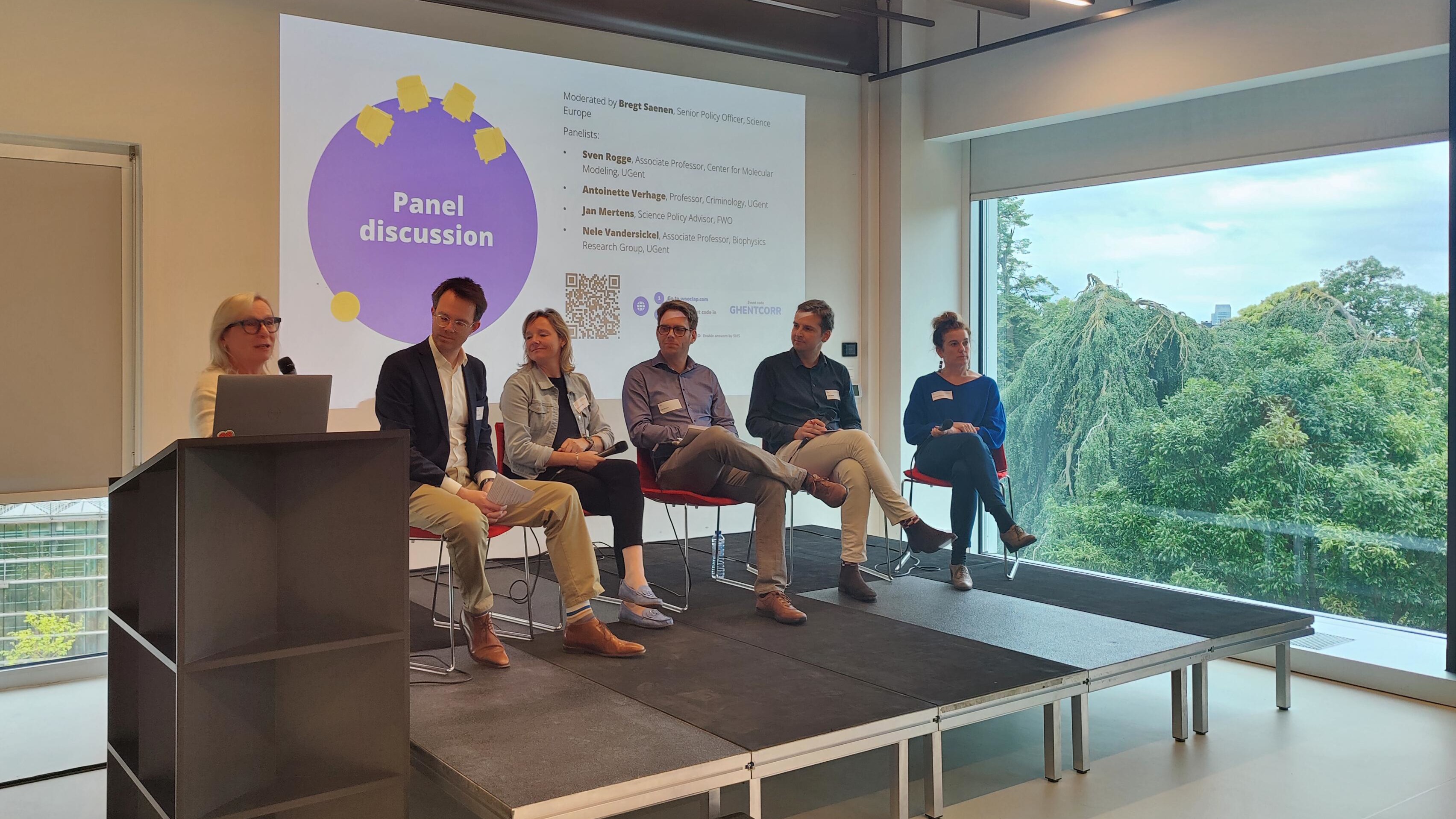GhentCORR launches with a mission to support Open and Reproducible Research
On June 10th, we officially launched GhentCORR, Ghent University’s grassroots Community for Open and Reproducible Research (ORR)! After nearly a year of building on the momentum from our 2024 blueprint workshop, the community has taken shape— and we are thrilled to see it come to life together with all of you.
The launch event brought together a diverse group of researchers, research support staff, and open science enthusiasts to share insights, reflect on challenges, and kick-start a collective journey toward more transparent and impactful research.
Why GhentCORR?
In his welcome address, Research Director Ignace Lemahieu captured the spirit of the community perfectly: while ORR is embedded in Ghent University’s Framework for Good Research Practice, it is not always easy to implement. That’s the objective if GhentCORR — to support each other in taking meaningful steps forward. “This is your community,” he said. “Whether you lead a session, share a tool, or mentor a peer, your involvement will shape what GhentCORR becomes.”

Keynote Highlights: From Data Sharing to Data Solidarity
Our keynote speaker, Sofie De Broe (Sciensano), took us through her professional journey in data governance, open health data, and the European health data space. Her talk made a strong case for ORR as a driver of real-world impact, especially in the health sciences. From wastewater monitoring to real-time dashboards, she showed how open data and FAIR practices are not just buzzwords—they make science more actionable and relevant.
Sofie also emphasized the importance of data solidarity—the idea that contributing data can benefit society as a whole— and the need to build trust and reward structures that support openness. She reminded us that the path to sharing is not always simple, especially when navigating legal and ethical landscapes, but it is a path worth taking.

A snapshot of current ORR practices at Ghent University
Pieter Van Dessel gave a brief overview of an ORR landscape survey distributed across the Ghent University community by GhentCORR’s core team in early 2025 . While awareness of practices is relatively high, actual uptake is still limited—especially for preregistration, which is the least known and used. That said, many participants expressed strong intrinsic motivation and a desire for more support. A separate blog post will dive deeper into the results, but clearly, there is plenty of room for growth—and GhentCORR can help fill the gap.

Panel takeaways: motivation, barriers, and the power of community
The panel discussion, moderated by Bregt Saenen (Science Europe and Ghent University alumnus), was a highlight of the afternoon, bringing in perspectives from across disciplines and roles—researchers, funders, journal editors, and policy advisors. While the challenges were familiar (time, funding, recognition), what stood out was the panel’s shared belief in the intrinsic value of ORR.
- Sven Rogge (UGent) talked about sharing research results that are reusable and the environmental impact of repeating simulations because of lack of transparency and reproducibility. He also pointed out the mismatch between commercial academic publishing practices and the inherent value research has for society.
- Nele Vandersickel (UGent) described her group’s internal “mini-ecosystem” for sharing tools, code, and authorship leading to higher efficiency and reproducibility—an inspiring model of grassroots collaboration, placing it in juxtaposition with the evaluation and recognition of individual researchers.
- Antoinette Verhage (UGent) shared how founding a diamond open access journal also helped build a strong, supportive academic community and an opportunity for researchers to develop new skills.
- Jan Mertens (FWO) gave insight into how funders are working to embed ORR into research assessment and evaluation frameworks. Narrative CVs, broader output categories, and new scoring rubrics are all part of the shift.
Panellists also stressed the role of communities like GhentCORR in helping researchers make sense of evolving expectations, connect across fields, and support each other through trial and error. As Bregt Saenen put it: the knowledge is in the community—but it needs a structure to be shared.

A message to keep us going
We wrapped up the day with an encouraging video message from Judith Biernaux (ULiège & RBINS), who coordinates several open research initiatives in Belgium. Speaking from her experience with community building, Judith reminded us that peer-to-peer exchange is a powerful engine for sustainable cultural change. She encouraged us to focus on sustainability over scale, lean on each other, and keep the energy alive—even when things get quiet. Her message was a motivating close to the event, and a great reminder that community-led change takes time, care, and collective effort.
What’s next?
We’re not stopping here. The first in a series of informal, hands-on events—Preregistration & Coffee—is coming this October. These sessions will be all about sharing experiences, asking questions, and learning together in a relaxed setting about how ORR works in practice.
Launching GhentCORR was a big milestone, but it is just the beginning. Whether you are looking to improve your data workflows, start a preregistration, publish open code, or simply connect with like-minded colleagues— this community is here for you.
Let’s keep building it—together.
Enjoy Reading This Article?
Here are some more articles you might like to read next: